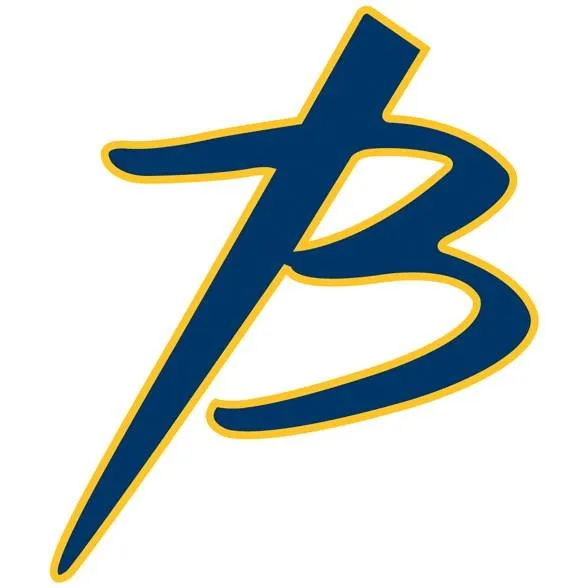Join our newsletter for weekly insights to your inbox.
Develop Leaders. Build Culture.
The complete system for educating, equipping, and supporting coaches.
It’s not just information. It’s transformation.
Culture doesn’t change by accident. Culture changes when leaders change.
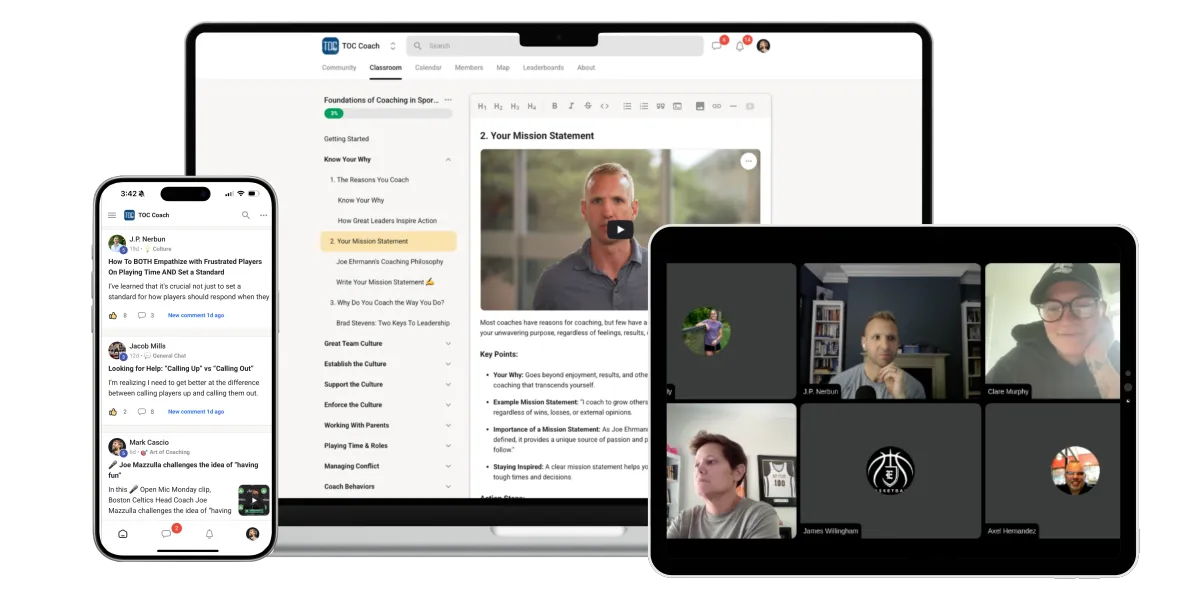
Inside TOC Coach you’ll gain the tools you need to:
💡 Define and implement your leadership philosophy
🤝 Build a united staff and stronger team standards
⭐ Lead with purpose, not pressure
✅ Create a culture that lasts
TOC Coach is built for coaches who want to lead with clarity, build stronger teams, and raise the stanndard, starting with themselves.
What Coaches Are Saying
The online courses and resources’ practical approach to culture building had a profound impact on our teams, resulting in increased athlete engagement and a more positive environment. I highly recommend this for anyone serious about improving team culture and camaraderie.


J.P. is one of those people who not only helps us see leadership in sports differently, he gives us practical tools and strategies that work!


J.P. provides a thorough overview of his system that’s turnkey to implement regardless of sport. We are always trying to find ways to make our practices more competitive. I can’t wait to begin using this with my basketball team this season.


The 3-Part System That Drives Real Change
We combine the three things every coach needs, but rarely gets in one place: Courses teach it. Community supports it. Coaching clarifies it.
Community
Grow with Like-Minded Coaches
Join a supportive network of coaches who challenge and encourage each other to lead with clarity, purpose, and alignment.
Courses
Learn the Culture System
Get on-demand access to TOC’s proven frameworks, systems, and leadership tools —ready to implement with your team today.
Coaching
Get Live, Real-Time Feedback
Work directly with JP Nerbun and TOC Certified Coaches to apply the system, solve tough problems, and stay sharp all year.
Ready to get started?
Community
Connect with Like-Minded Coaches
A private, global community built for transformational leaders.
THE ART OF COACHING
PLAYING TIME SOLUTIONS
HOLDING HIGH STANDARDS
SPORTS PARENT SOLUTIONS
LEADERSHIP DEVELOPMENT
DAILY INSPIRATION
Step into a trusted space where coaches ask real questions, share wins, and gain perspective from others walking the same path. Whether you're navigating a tough season or building long-term alignment, you don’t have to do it alone. Inside, you’ll find peer support, fresh ideas, and space to grow your culture.
You’ll be part of honest conversations on the topics that matter most — from practice design and team standards to parent communication and leadership development.
Courses
Learn at Your Own Pace.
Over 15 hours of expert-led video content + 100s of resources.
Give the most effective framework for building strong team culture and solving real coaching challenges. Our self-paced courses are designed for modern leaders—from first-year assistants to seasoned varsity coaches. Each course is built around the proven TOC Culture System and packed with tools you and your staff can use right away.


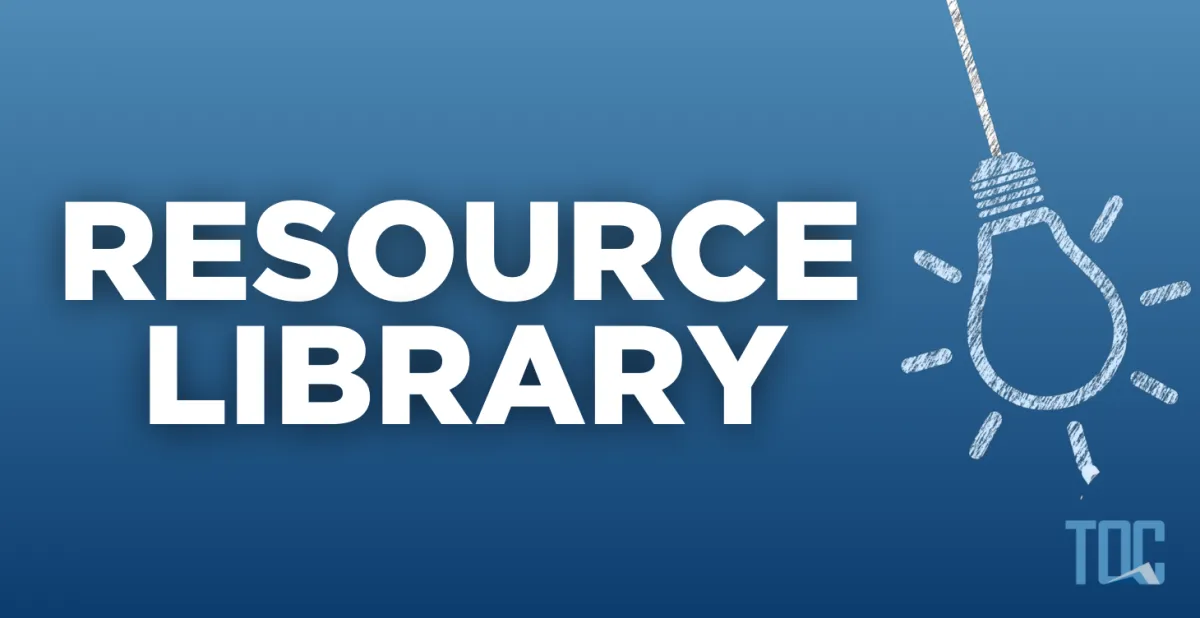
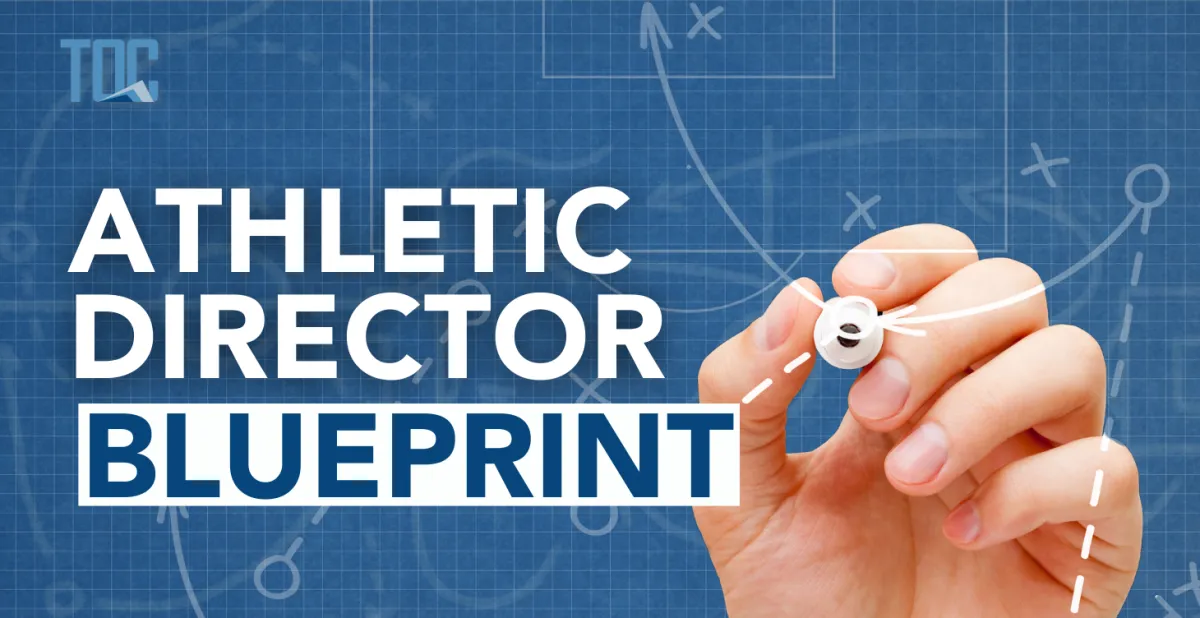

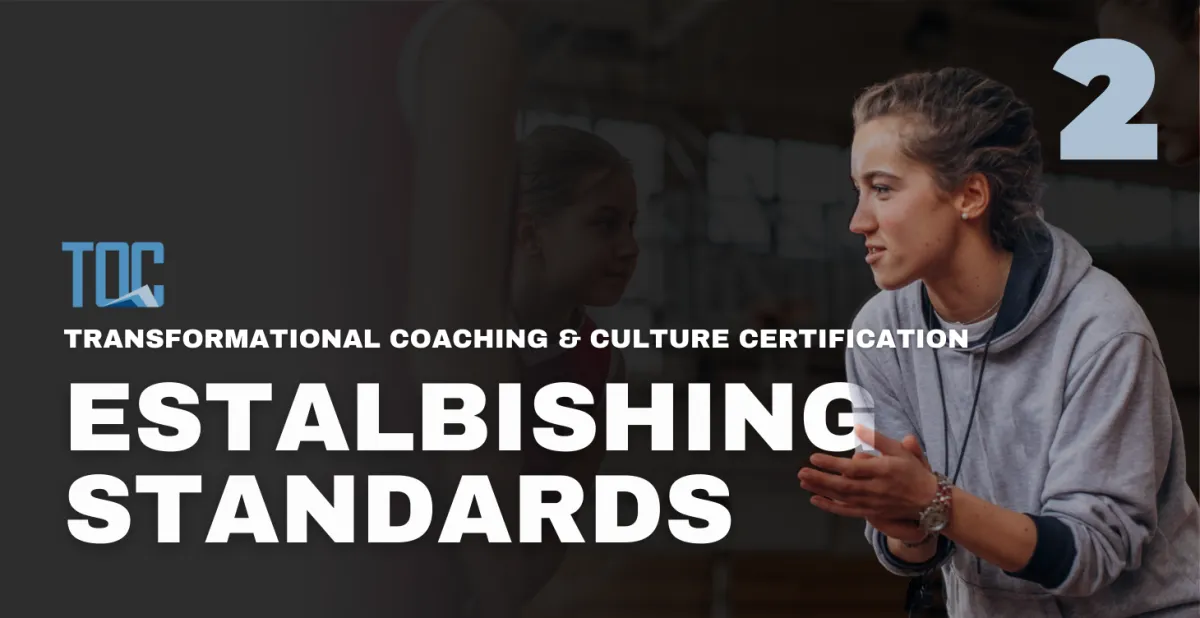
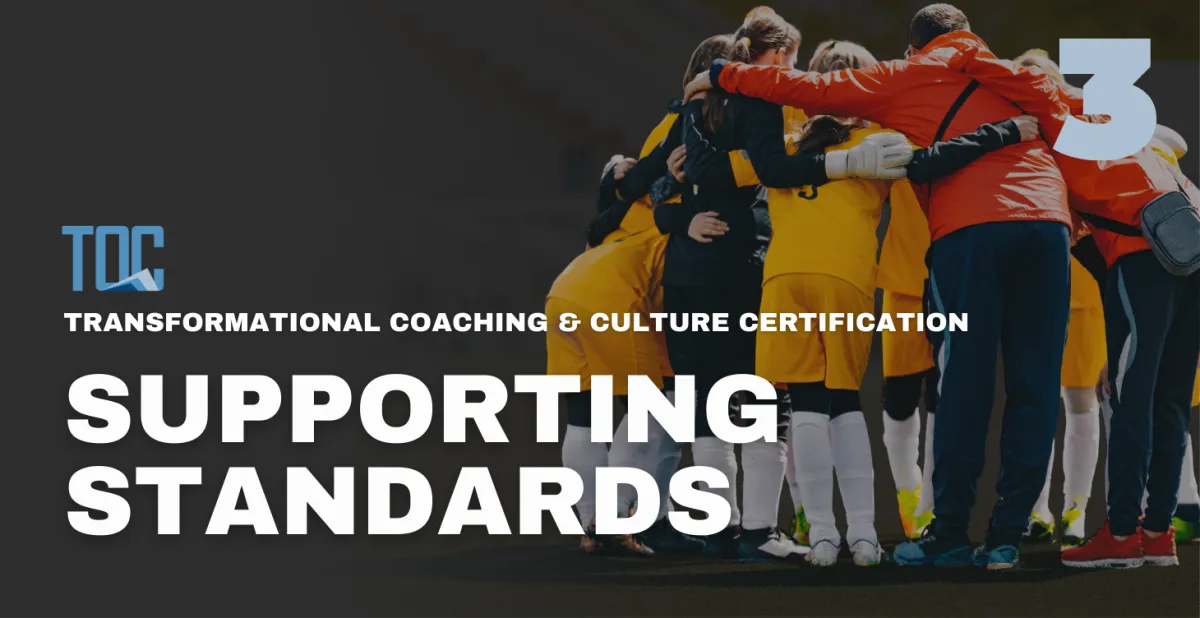
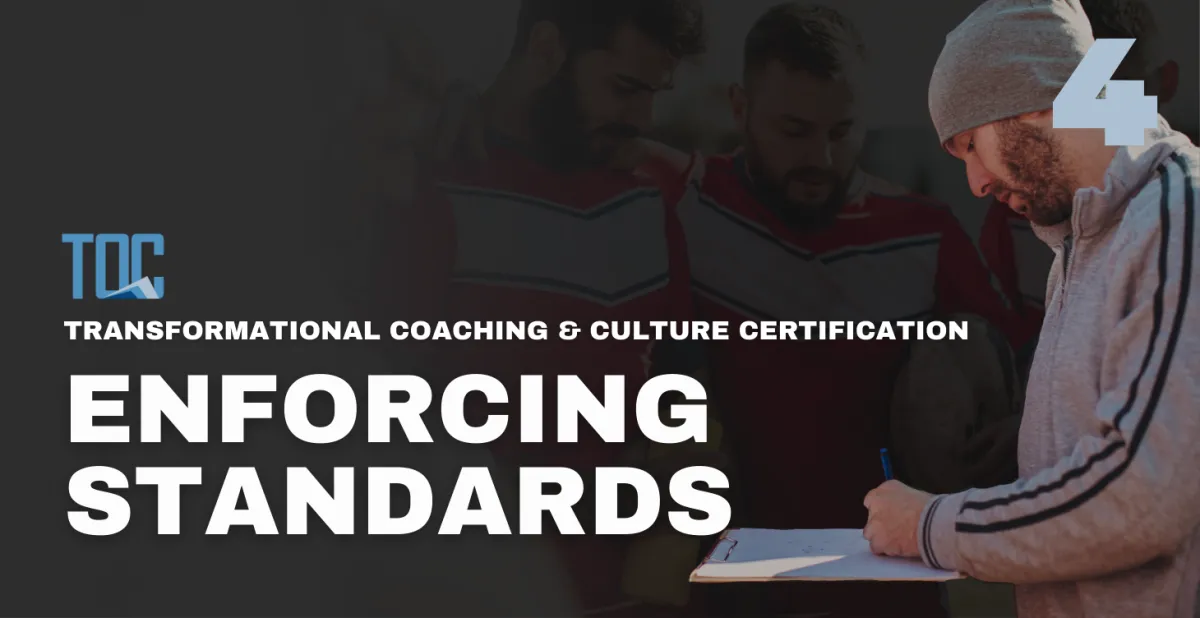
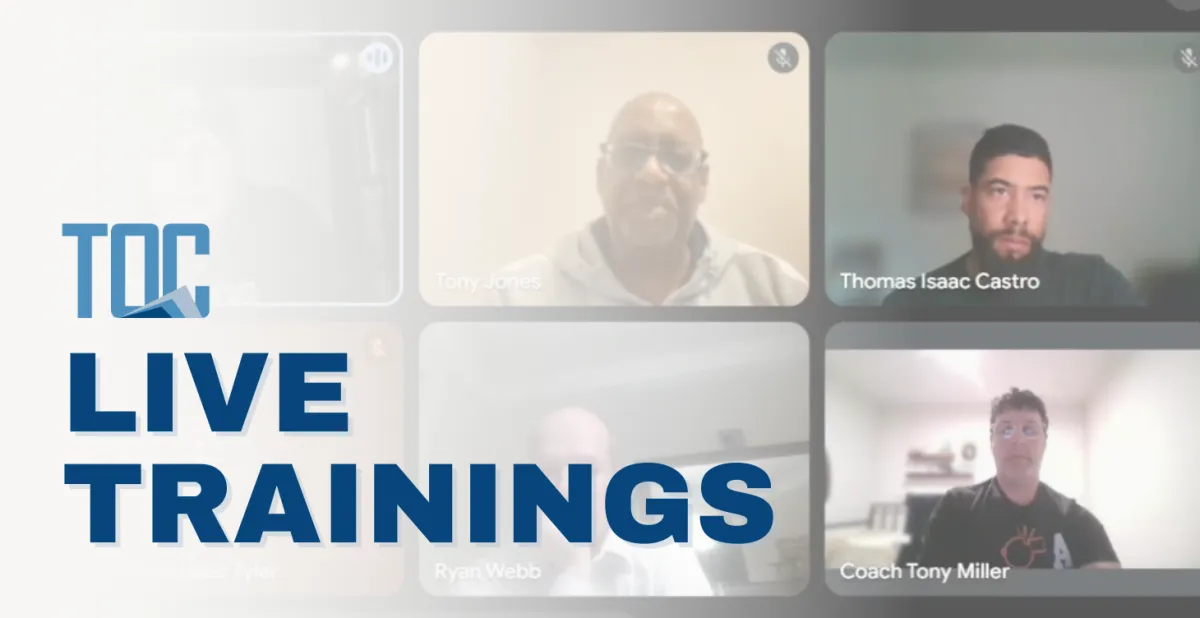
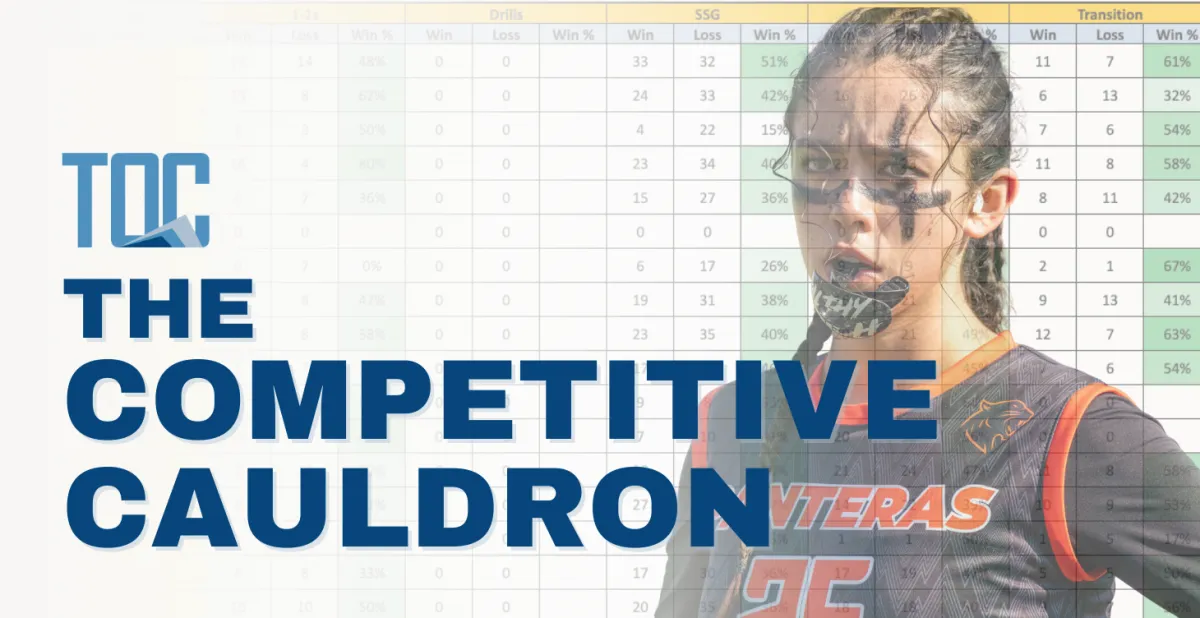
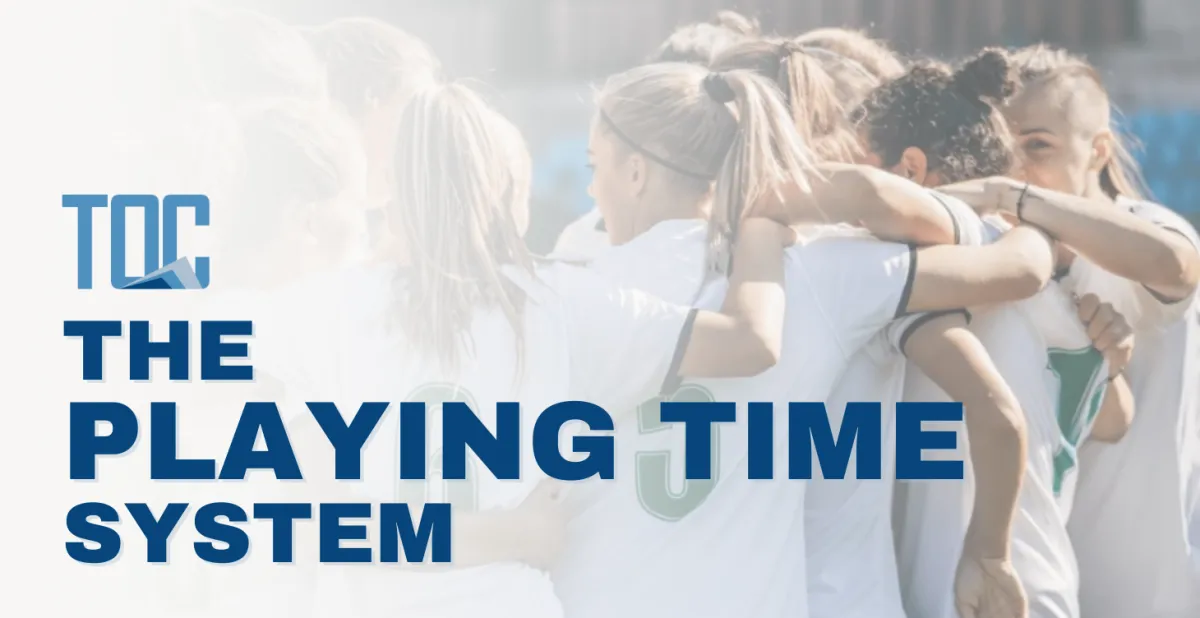

Coaching
Real Solutions for Real Coaches.
Gain actionable strategies, tools and solutions for your toughest coaching problems.
Each week, you’ll have access to live coaching calls where you can ask tough questions, get personalized feedback, and sharpen your leadership. Whether you’re refining your team vision or facing resistance in your program, we’ll help you work through it. Can’t make it live? Recordings are always available.
Choose Your Experience
VIP is built for Athletic Directors. your entire coaching staff gets Premium access, including head, assistant, and feeder coaches.
STANDARD
FREE
Community Support & Engagement
The Culture System Guide
The Art of Coaching Guide
Personalized Onboarding Call
All Courses & Resources
100s of Ready-to-Use Resources
Weekly Live Coaching Calls
1:1 Executive Coaching Call
TOC Certification
PREMIUM
$297/yr
Community Support & Engagement
The Culture System Guide
The Art of Coaching Guide
Personalized Onboarding Call
ALL Courses & Resources
100s of Ready-to-Use Resources
Weekly Live Coaching Calls
1:1 Executive Coaching Call
TOC Certification
VIP
$5,000/yr
Department Level Access
Unlimited Premium Accounts
Access to Exclusive Courses
Live Trainings for Athletic Directors
Private community for your staff
Premium Access to SAVI Membership
TOC AD Certification
Have questions? Let's Talk.




